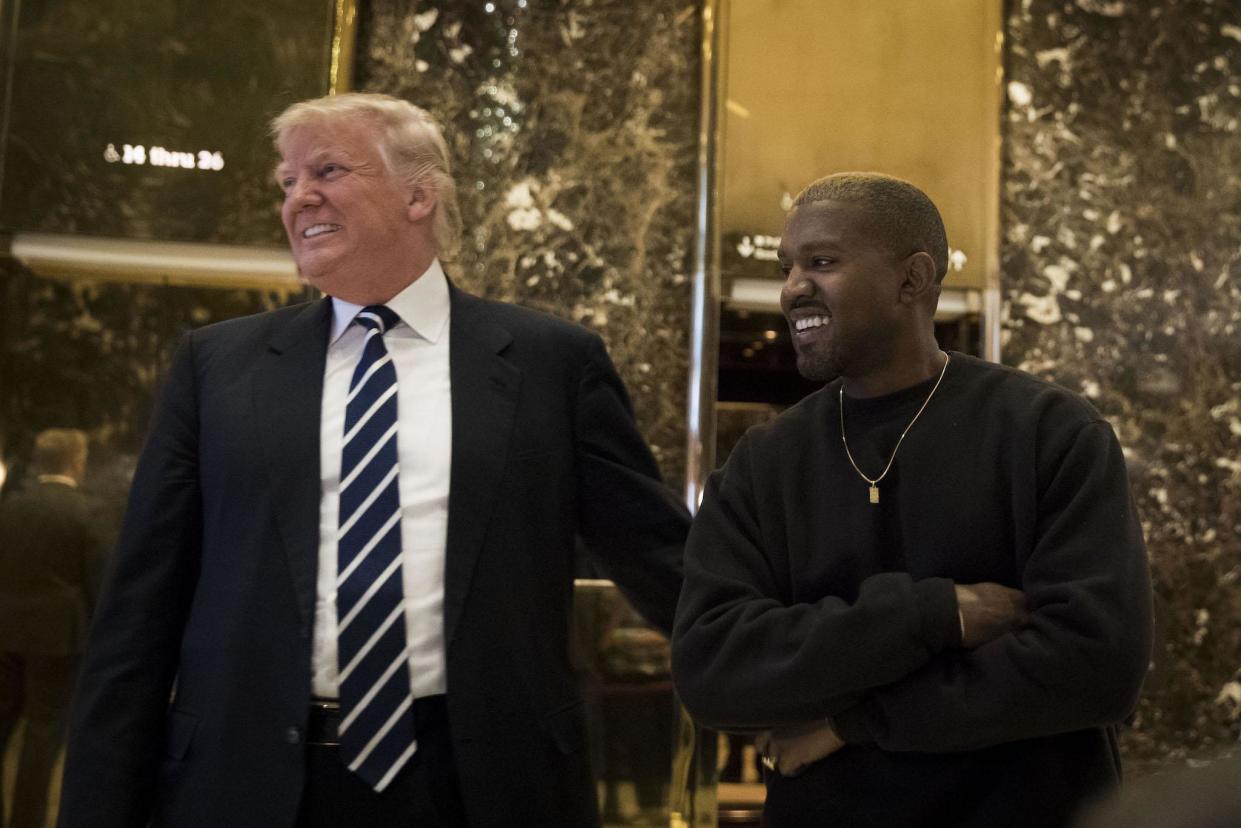I’m with Kim Kardashian – stop speculating about Kanye’s mental health just because he likes Trump

If you’re on Twitter, the likelihood is that Kanye West has been spamming your feed over the last few days.
Given that he shares his view on every topic under the sun, the internationally famous rapper ricochets inspirational tidbits like “to be great is to be misunderstood”, and controversial political statements such as, “You don't have to agree with Trump but the mob can't make me not love him. We are both dragon energy. He is my brother.”
Kanye’s social media spree has been picked up by the press and used as fodder for further speculation about his mental health. Ever since the artist was hospitalised in 2016 and briefly kept under observation in the UCLA Medical Centre in Los Angeles, the media has gossiped obsessively about Kanye’s mental state.
His wife Kim Kardashian has now taken to Twitter to criticise the aspersions on her husband, writing, “To the media trying to demonise my husband, let me just say this... your commentary on Kanye being erratic & his tweets being disturbing is actually scary. So quick to label him as having mental health issues for just being himself, when he has always been expressive is not fair.”
She concluded her criticism by tweeting: “Mental health is no joke and the media needs to stop spitting that out so casual. Bottom line.”
She’s right. Whenever the media tries to take on the role of a “concerned medical professional” and starts rumours about celebrities’ mental health – be that Amy Winehouse’s addiction, Britney’s breakdown, the eating disorders of various models – its interest is, often, not coming from a good place.
In an age where mental health is a bigger part of the international conversation, “diagnosis by media” is becoming an increasingly popular and dangerous phenomenon. The tabloid press will never be like a thoughtful friend, looking out for celebrities who they think might be on the edge. Instead, they have a vested interest in derailing their subjects and making money out of their distress.
The media’s charge of mental instability isn’t only personally offensive and deeply inappropriate. It’s also problematic on a wider scale, because in treating Kanye’s worrying praise of Donald Trump as the mere ravings of a madman, we fail to see them as serious statements that need to be publicly challenged.
After all, throughout Trump’s unconventional ascent to power, the left would have been better served by taking a less dismissive approach towards the real estate developer’s substantial following.
Generally speaking, I think it’s important to be aware as to how mental health issues might manifest, but this isn’t an excuse for the media to act like a gossipy, quack-psychiatrist. We have to allow people to recover from bad episodes, and not let their past struggles distort and explain their current behaviour.
As we’ve seen with Kanye, our culture encourages us to pathologise and stigmatise friends, family and colleagues who want to be able to escape from their past mental health issues. We need to give people the licence to be mentally healthy again. We mustn’t let people be defined by illness – past or present.
We’ve repeatedly seen how the tabloids exacerbate the predicaments they identify. The press and the public should keep their opinions on Kanye’s mental state to themselves, and instead focus on the more relevant issue of why he’s chosen to, yet again, publicly speak in favour of Donald Trump, and what the broader impact of this might be.
After all, clearly, support for the president is rife amongst the sane community, and that’s the most troubling thing of all.

 Yahoo News
Yahoo News 
